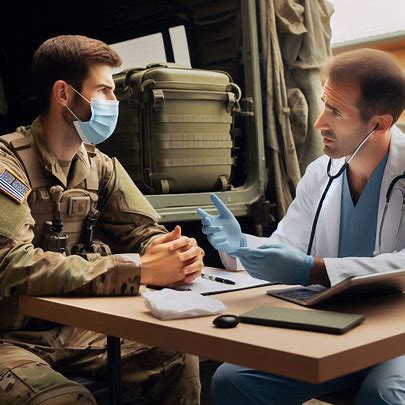Serving Beyond Borders: Why Medical Spanish Matters for Military Medics and First Responders

Over 41 million people in the United States speak Spanish at home, and many of them have limited English proficiency. For military medics, first responders, and VA hospital staff, being able to communicate clearly in Spanish can be the difference between life and death. Language is not just a tool — it’s a critical part of patient care, especially in high-pressure, emergency settings.
When disaster strikes or military personnel are deployed, communication barriers can slow down treatment and escalate already tense situations. Whether it’s in a hurricane-hit region of Puerto Rico or along the southern border, knowing how to provide care in Spanish enhances safety and trust. This is where programs like medical Spanish online become essential, offering flexible and practical training tailored for healthcare workers in the field.
Why Language Matters in Crisis Situations
First responders often work in chaotic environments where fast decisions and accurate assessments are crucial. Add a language barrier, and the risk of misunderstanding symptoms or giving incorrect instructions rises sharply. For instance, a medic who can ask a patient “¿Dónde le duele?” (Where does it hurt?) or understand “me duele el pecho” (my chest hurts) is more effective and reliable in an emergency. It’s not just about vocabulary — it’s about showing cultural awareness and empathy under pressure.
During natural disasters, rescue teams frequently find themselves aiding communities where Spanish is the primary language. Without Spanish skills, responders might rely on gestures or guesswork. That’s not enough. Learning medical Spanish prepares them to ask the right questions, understand responses quickly, and provide faster, more accurate treatment.
Military Medics in Multilingual Environments
Military medics face a unique challenge. They often operate abroad or in diverse areas with mixed-language populations. During humanitarian missions, peacekeeping operations, or joint international exercises, they encounter patients from various backgrounds. Spanish is one of the most spoken languages worldwide, so even when English isn’t understood, Spanish might be. Being trained in medical Spanish gives medics an edge, enabling them to bridge communication gaps with dignity and professionalism.
Back home, veterans from Hispanic communities often receive care at VA hospitals. Providers who can communicate in Spanish build stronger relationships with their patients, making them feel seen and understood. This improves not only patient satisfaction but also health outcomes through better follow-ups and adherence to medical instructions. Another essential component in military readiness is understanding the role of mathematics in military strategy, which further supports effective decision-making in high-pressure environments.
How Common Ground International Makes a Difference
Common Ground International offers targeted language programs that focus on real-world use. These aren’t general Spanish lessons. Their courses are built for medical professionals and emphasize vocabulary, structure, and phrases used in clinical settings. What makes their approach valuable is its focus on communication — not just grammar. Learners get to practice through scenarios, dialogues, and live instruction tailored to their field of work.
The flexibility of online learning allows active-duty personnel, EMTs, or hospital staff to train on their schedule. Whether it’s brushing up on key terms before deployment or diving deep into medical interview skills, these programs meet professionals where they are — no matter their time zone or location.
Building Trust Through Language
Trust is one of the most important elements in emergency healthcare. Patients are often scared, in pain, or uncertain about what’s happening. Speaking their language can calm them, speed up care, and even save lives. For first responders and military medics, these interactions often take place under the most stressful conditions. By training in medical Spanish, they’re not just becoming better professionals — they’re becoming more human-centered providers.
It’s also a sign of respect. Making the effort to speak someone’s language sends a message: “You matter. I care enough to understand you.” In a field where seconds count and compassion is key, that can mean everything.
Looking Ahead: Language as a Preparedness Tool
Emergencies are unpredictable, but preparation isn’t. Language training should be part of every medic and first responder’s toolkit. It’s not just for international deployments or disaster zones — it’s relevant in cities, rural areas, and even military clinics across the U.S. Spanish-speaking patients are part of the communities served every day. Preparing for that reality is smart, responsible, and necessary.
Programs like those offered by Common Ground International are helping shape a future where healthcare providers can connect with anyone, anywhere — even beyond borders. That’s not just good practice. It’s good medicine.



